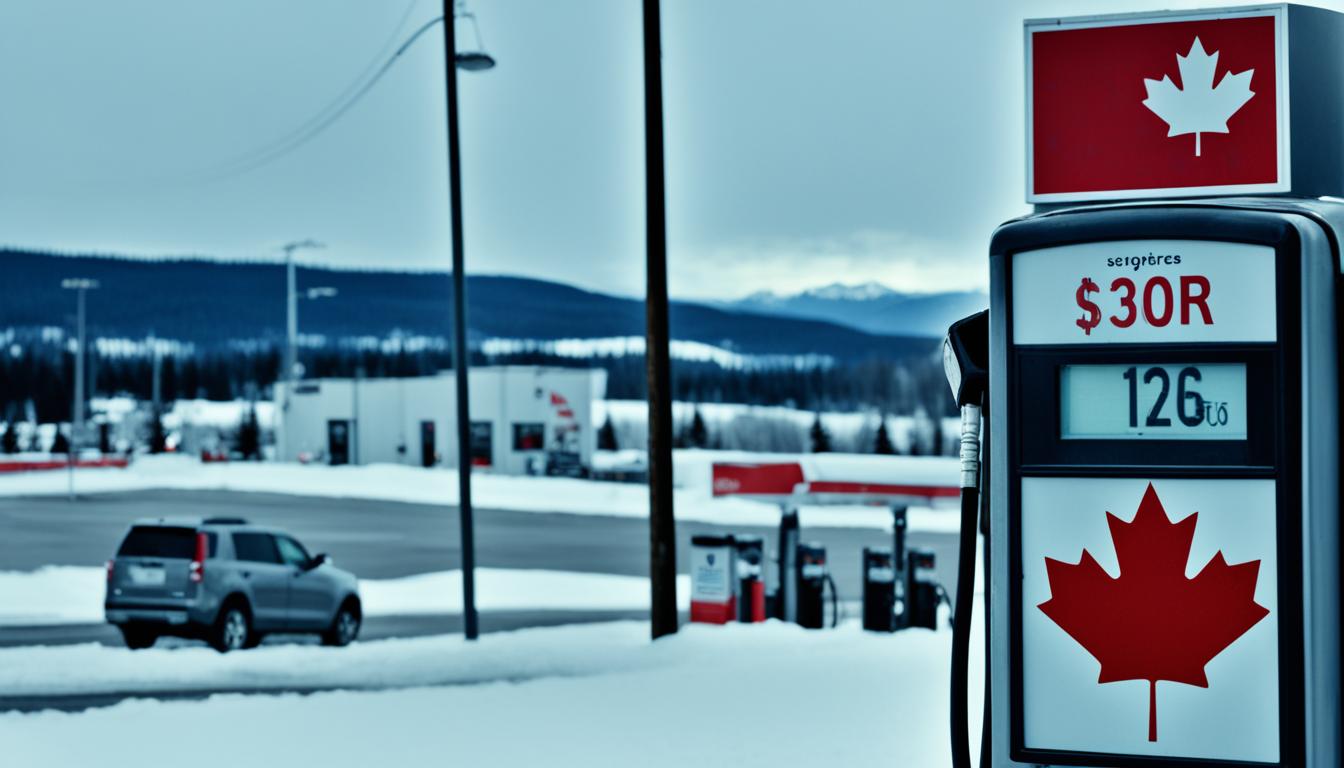Gas prices in Canada have been on the rise, leaving many Canadians wondering why they’re digging deeper into their pockets every time they fill up at the pump. From taxes to transportation costs, there are a multitude of factors influencing the high price of gas in our country. In this blog post, we’ll dive into the reasons behind why gas is so expensive in Canada and what you can do to save money on your next fuel purchase. So buckle up and get ready for a wild ride as we uncover the mysteries behind those costly gas prices!
Why Is Gas So Expensive in Canada?
Gas prices in Canada are notably higher compared to many other countries, including the United States. Several factors contribute to the high cost of gas across the country. One major reason is the impact of geopolitical events and global supply and demand dynamics on the price of crude oil, which heavily influences gas prices in Canada. Geopolitical tensions and economic sanctions can disrupt the supply chain, leading to increased costs for consumers at the pump.
Additionally, the lasting effects of the COVID-19 pandemic, such as disruptions in oil production and refining, have created a lag in supply as demand gradually picks up again, further driving up gas prices. High taxes imposed on gasoline, including excise and provincial taxes, along with the carbon tax aimed at reducing emissions, also significantly add to the overall cost of gas in Canada. These combined factors contribute to the expensive nature of gas in Canada, prompting individuals to consider various strategies to reduce their gas consumption and offset the impact of high prices on their wallets.
The Impact of the Pandemic on Gas Prices in Canada
The COVID-19 pandemic has had a significant impact on gas prices in Canada. As economies slowed down and people stayed home, the demand for oil drastically fell. This led to oil companies reducing drilling for new oil supplies and slowing down or stopping some refineries.
However, as countries start to recover and economic activity resumes, the demand for oil is increasing again. The problem is that it takes time to drill new oil wells and restart refineries, causing a lag in supply. Additionally, disrupted supply chains due to the pandemic have resulted in general price inflation, contributing to rising gas prices in Canada.
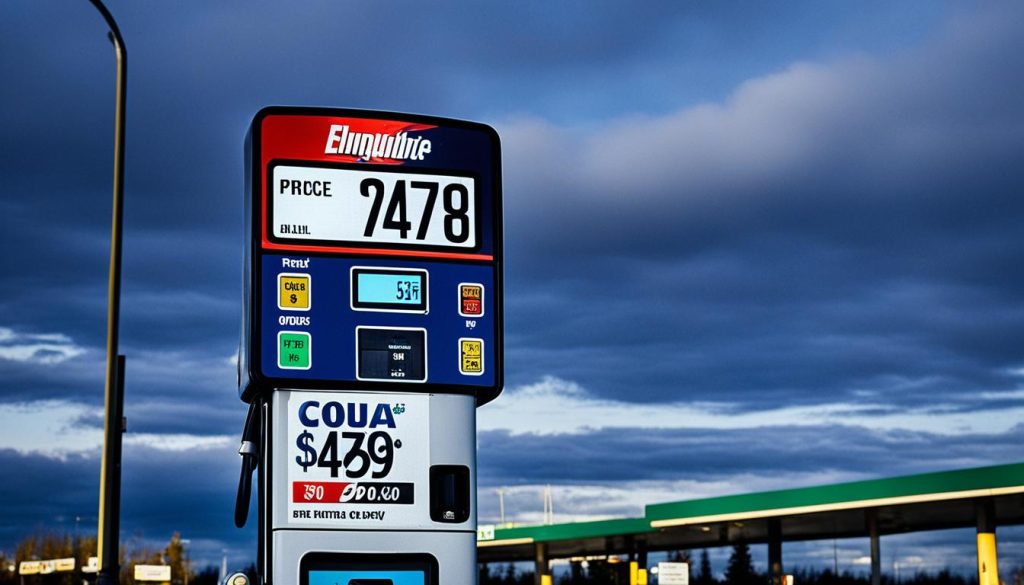
The impact of the pandemic on gas prices in Canada has been significant. As the world recovers and demand for oil resumes, it will be important to balance supply and demand in order to stabilize gas prices and mitigate the effects on the Canadian economy.
Geopolitical Factors and Gas Prices in Canada
Geopolitical factors have a significant impact on gas prices in Canada. One major player in the global oil market is the Organization of the Petroleum Exporting Countries (OPEC). They control the supply of crude oil to most parts of the world, including Canada. During the COVID-19 pandemic, OPEC made significant cuts in oil production to keep prices at a certain level. However, as the demand for oil increases with the gradual recovery of economies, OPEC has not increased production at the same pace, leading to higher profits and higher oil prices. This has a direct impact on gas prices in Canada, as the country relies heavily on imported oil.
In addition to OPEC’s actions, geopolitical events also affect gas prices globally, including Canada. Conflicts in the Middle East, for instance, can disrupt oil supply and cause fluctuations in gas prices. Any disruption in oil-producing regions can create instability in the oil market, leading to price volatility. These fluctuations are not limited to specific countries and can impact the price of gas in Canada as well.
Comparison of Gas Prices: Canada vs. Other Countries
To gain a better understanding of the impact of geopolitical factors on gas prices in Canada, let’s compare the average gas prices in Canada with other countries:
| Country | Average Gas Price (USD per Gallon) |
|---|---|
| Canada | \$\3.27 |
| United States | \$\2.85 |
| United Kingdom | \$\6.34 |
| Australia | \$\4.59 |
As shown in the table above, the average gas price in Canada (\$3.27 per gallon) is higher than that of the United States (\$2.85 per gallon) but lower compared to the United Kingdom (\$6.34 per gallon) and Australia (\$4.59 per gallon\). This disparity can be attributed to various factors, including taxes, exchange rates, and geopolitical influences. However, it’s important to note that gas prices can vary within each country and are subject to change based on market conditions and regional factors.
Overall, it is evident that geopolitical factors, such as OPEC’s control over oil supply and conflicts in oil-producing regions, play a significant role in gas price fluctuations in Canada. To ensure a more stable and affordable gas market, it is crucial for Canada to find ways to reduce its reliance on imported oil and develop sustainable energy solutions.
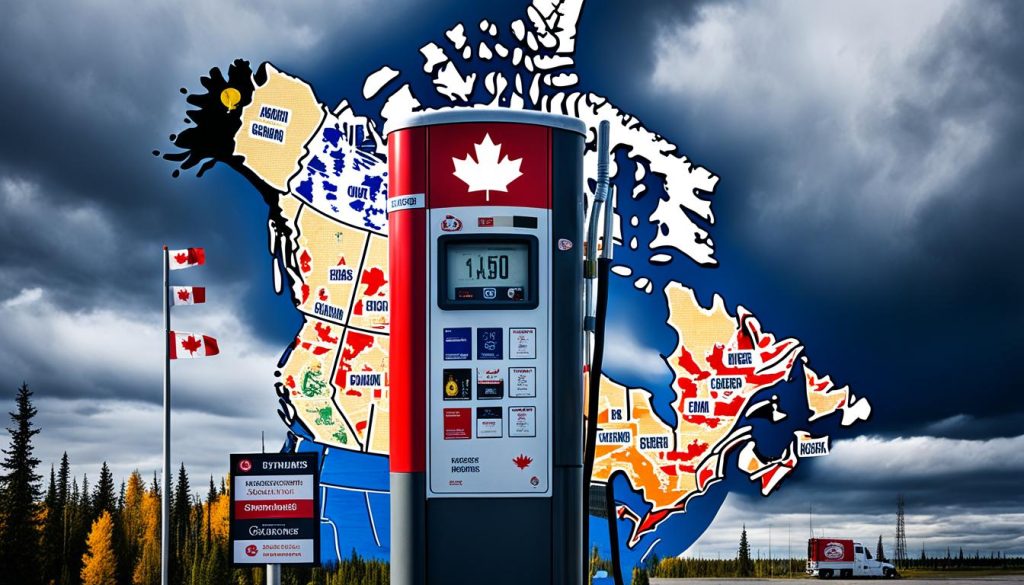
Taxes and Gas Prices in Canada
Taxes are a significant factor contributing to the high cost of gas in Canada. Compared to the United States, gas prices in Canada are generally higher, primarily due to higher taxes imposed by the Canadian government.
The government levies various taxes on gasoline, including excise taxes and provincial taxes. These taxes are collected at the pump and add to the overall price of gas in Canada.
Additionally, there is a carbon tax implemented to reduce greenhouse gas emissions. The carbon tax adds an additional cost to each liter of gas consumed.
The amount of tax applied to a liter of gas varies by province, ranging from around 30 cents to over 40 cents. This tax contributes significantly to the overall cost of gas in Canada.
To understand the impact of taxes on gas prices in Canada, let’s take a closer look at the breakdown of gas prices:
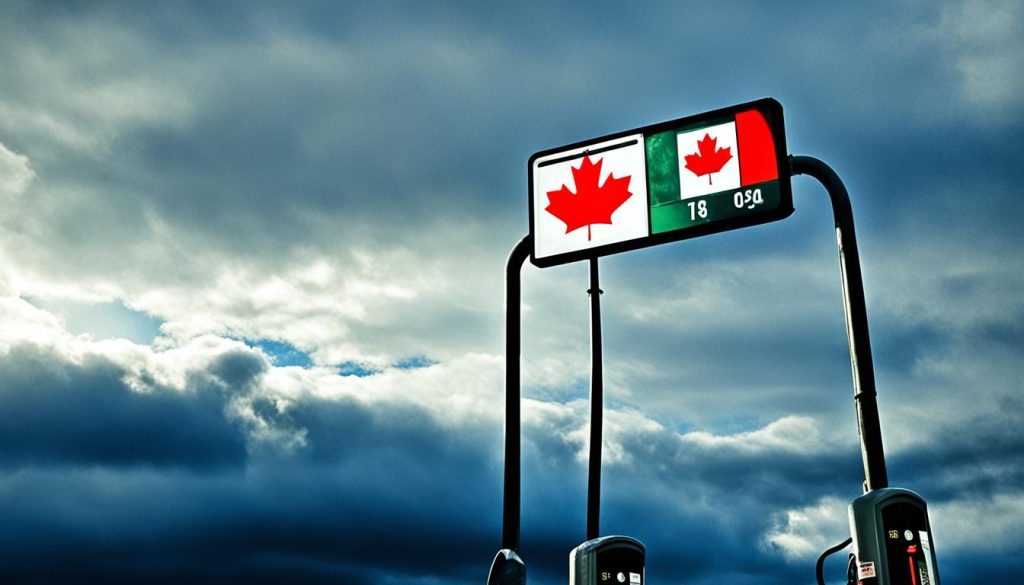
Breakdown of Gas Prices in Canada (per liter)
| Taxes | Price without Taxes | Total Price |
|---|---|---|
| Carbon Tax | Varies by province | Dependent on carbon tax rate |
| Excise Tax | Approximately 10-15 cents | Dependent on province |
| Provincial Taxes | Varies by province | Dependent on provincial tax rates |
| Total Taxes | N/A | Dependent on province |
As shown in the table above, taxes account for a significant portion of the total gas price in Canada. These taxes are essential for funding infrastructure and programs, including road maintenance and environmental initiatives. However, they contribute to the overall higher cost of gas compared to neighboring countries.
Strategies to Offset High Gas Prices in Canada
If you’re looking for ways to offset the high gas prices in Canada, there are several strategies you can consider. By implementing these solutions, you can save money on fuel and reduce your overall expenses.
1. Reduce Gas Consumption
To minimize your reliance on expensive gas, try incorporating these habits into your daily routine:
- Walking or cycling: Consider walking or biking for shorter trips instead of driving. This not only helps you save on gas but also promotes a healthier lifestyle.
- Take public transit: When possible, opt for public transportation. It’s a cost-effective and eco-friendly way to travel.
- Carpool: Carpooling with colleagues or neighbors allows you to share the cost of gas and reduces the number of vehicles on the road.
- Combine errands: Plan your outings strategically to minimize unnecessary driving. Group multiple errands into a single trip to maximize efficiency.
2. Improve Fuel Efficiency
Maximize the fuel efficiency of your vehicle with these tips:
- Vehicle maintenance: Regularly service your vehicle to keep it running optimally. Addressing issues promptly, such as replacing air filters or getting tune-ups, can improve fuel efficiency.
- Properly inflate tires: Underinflated tires can increase fuel consumption. Check your tire pressure regularly and keep them properly inflated.
- Remove unnecessary weight: Reduce extra weight in your vehicle, such as sports equipment or heavy items in the trunk, as they can affect fuel efficiency.
3. Drive Smarter
Alter your driving habits to save on fuel:
- Drive slower: Maintaining a consistent, moderate speed can improve fuel efficiency and save you money.
- Accelerate and decelerate smoothly: Avoid quick acceleration and harsh braking, which waste fuel. Opt for smooth, gradual changes in speed.
- Limit idling: Avoid unnecessary idling, such as leaving the engine running when parked. This reduces fuel consumption and saves money.
4. Consider Alternative Fuel Sources
Investigate alternative fuel options to reduce your reliance on traditional gasoline:
- Hybrid or electric vehicles: Consider purchasing a hybrid or electric vehicle, which offer greater fuel efficiency and lower emissions.
- Biofuels: Some vehicles can use biofuels, such as ethanol or biodiesel, as an alternative to gasoline. Research if this is a viable option for your vehicle.
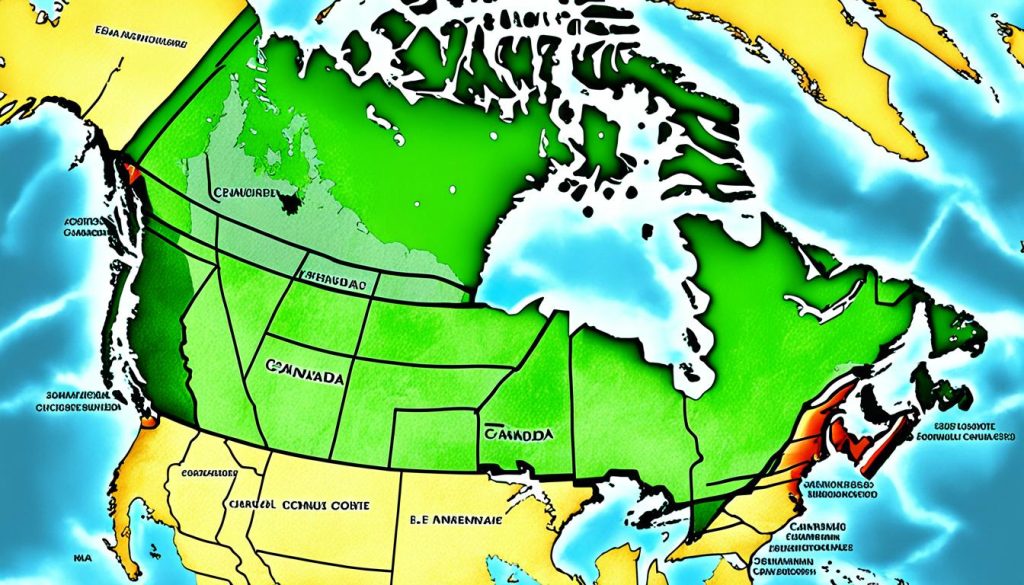
Buying gas during weekdays when prices are often lower can also help you save money. By implementing these strategies and making conscious choices, you can offset the impact of high gas prices in Canada.
| Strategy | Benefits |
|---|---|
| Reduce gas consumption | – Save money on fuel – Promote a healthier lifestyle – Minimize environmental impact |
| Improve fuel efficiency | – Maximize mileage – Lower carbon emissions – Extend the lifespan of your vehicle |
| Drive smarter | – Reduce fuel consumption – Save money – Lower environmental impact |
| Consider alternative fuel sources | – Decrease reliance on traditional gasoline – Lower carbon footprint – Explore sustainable transportation options |
Conclusion
Gas prices in Canada are influenced by various factors, including geopolitical events, the impact of the COVID-19 pandemic, taxes, and supply and demand dynamics. These factors contribute to the high cost of gas in the country, making it an ongoing concern for many Canadians. However, there are strategies that individuals can adopt to mitigate the impact on their wallets and make informed choices to save on fuel expenses.
One effective strategy is to explore alternative modes of transportation, such as walking, cycling, or taking public transit. Embracing these options can not only reduce reliance on gas but also contribute to a greener and more sustainable environment. Additionally, maintaining vehicles properly, driving efficiently, and considering more fuel-efficient options, like hybrid or electric cars, can help individuals save on fuel costs in the long run.
Furthermore, ongoing efforts to balance supply and demand in the oil market, as well as embrace cleaner energy solutions, hold promise in addressing the underlying causes of high gas prices in Canada. By supporting initiatives that promote energy efficiency, renewable energy sources, and reduced greenhouse gas emissions, Canadians can contribute to a more sustainable future and potentially alleviate the burden of high gas prices.
FAQ
1. Why are gas prices so high in Canada compared to the US?
Gas prices in Canada are generally higher than in the US due to several factors, including higher taxes, geopolitical events, and supply and demand dynamics.
2. How much is gas taxed in Canada?
The amount of tax on a litre of gas varies by province in Canada but can range from around 30 cents to over 40 cents per litre.
3. How much does the carbon tax add to a litre of gas?
The carbon tax in Canada adds to the cost of gas, but the amount varies depending on the province and can range from a few cents to over 10 cents per litre.
4. How does gas pricing work in Canada?
Gas pricing in Canada is influenced by factors such as the cost of crude oil, taxes, transportation, refining, and retail margins.
5. Does Canada have the highest gas prices?
While it depends on the specific comparison, gas prices in Canada are generally higher than in many other countries, including the US.
6. How much is 1 litre of gas in Canada?
The price of 1 litre of gas in Canada varies by location and can range from around

